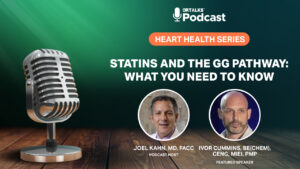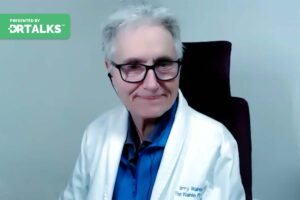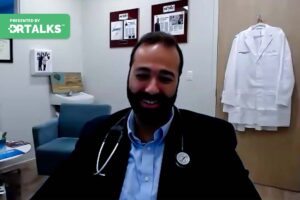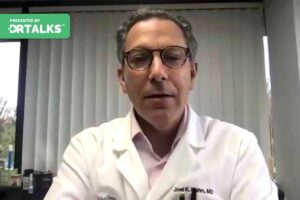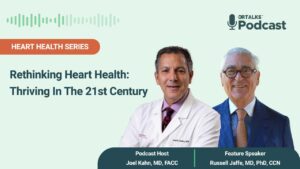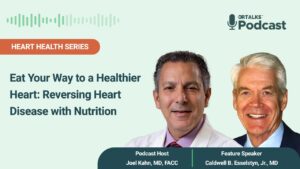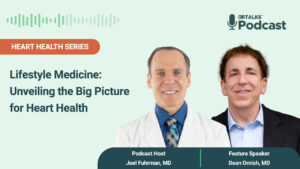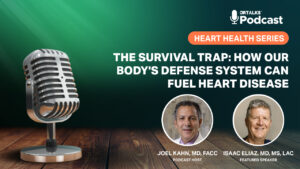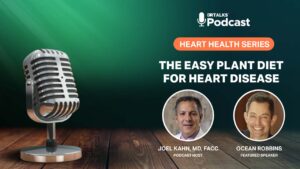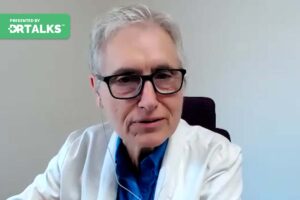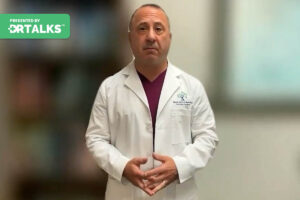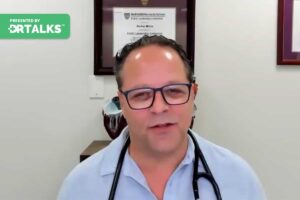Browse all DrTalks
Topics
Explore Health Topics To Explore Information About Diseases & Medical Conditions. See All Topics Below in Our Nav Bar.
Alzheimer's
Alzheimer's disease is a progressive neurodegenerative disorder that affects the brain, primarily causing memory loss and cognitive decline. It is the most common cause of dementia in older adults. As the disease advances, individuals may experience difficulties with language, problem-solving, and performing everyday tasks. The exact cause of Alzheimer's is not fully understood, but it is characterized by the buildup of abnormal protein deposits in the brain, including beta-amyloid plaques and tau tangles. There is currently no cure for Alzheimer's,...Read more
View allCancer
Cancer is a complex group of diseases characterized by the uncontrolled growth and spread of abnormal cells in the body. There are various types of cancer, depending on the affected tissues or organs. Cancer can develop due to genetic mutations, exposure to carcinogens, chronic inflammation, or a combination of factors. Early detection is crucial for successful treatment, and cancer management often involves a multidisciplinary approach, including surgery, radiation therapy, chemotherapy, immunotherapy, and targeted therapies. Additionally, lifestyle factors such as maintaining...Read more
View allDiabetes
Diabetes is a chronic metabolic disorder characterized by high blood sugar levels (glucose) in the body, primarily due to insufficient insulin production or the body's inability to use insulin effectively. There are several types of diabetes, with type 2 diabetes being the most common. This condition can have a profound impact on an individual's overall health, as persistently elevated blood sugar levels can damage various organs and systems, including the heart, blood vessels, kidneys, eyes, and nerves. Risk factors for...Read more
View allHypertension
Hypertension, commonly known as high blood pressure, is a chronic medical condition characterized by elevated blood pressure levels within the arteries. It is a prevalent global health concern and often referred to as the "silent killer" due to its insidious nature. Hypertension can strain the heart and blood vessels, increasing the risk of serious health complications such as heart disease, stroke, kidney problems, and even vision impairment if left untreated. While genetics can play a role, lifestyle factors such as...Read more
View allHeart Disease
Heart disease, also known as cardiovascular disease, encompasses a broad range of conditions that affect the heart and blood vessels, with coronary artery disease being the most common form. It is a significant global health concern and a leading cause of morbidity and mortality. Heart disease typically develops when plaque, a waxy substance, builds up in the coronary arteries, causing them to narrow and restrict blood flow to the heart muscle. This can result in chest pain (angina), shortness of...Read more
View allAI
Artificial Intelligence (AI) has emerged as a transformative force in the field of medicine, revolutionizing healthcare in unprecedented ways. AI refers to the development of computer systems capable of performing tasks that typically require human intelligence, such as learning from data, making predictions, and problem-solving. In the medical realm, AI applications have rapidly evolved to assist clinicians in diagnosing diseases, personalizing treatment plans, managing patient data, and improving overall healthcare outcomes. Machine learning algorithms, a subset of AI, analyze vast...Read more
View allAging
Aging is a natural biological process that involves the gradual decline of various bodily functions over time. While aging is inevitable, lifestyle factors, such as diet, exercise, and avoiding tobacco and excessive alcohol consumption, can influence the rate at which it occurs. As people age, they may experience age-related conditions, such as osteoporosis, cardiovascular disease, and cognitive decline. Regular medical check-ups and screenings are essential for early detection and management of age-related health issues. Moreover, staying socially active, engaging in...Read more
View allAutoimmune Disease
Autoimmune diseases occur when the body's immune system mistakenly attacks its tissues, mistaking them for foreign invaders. There are numerous autoimmune diseases, including rheumatoid arthritis, systemic lupus erythematosus (SLE), multiple sclerosis, and type 1 diabetes, among others. Symptoms can vary widely depending on the affected organs or systems but often include inflammation, pain, and damage to tissues. The exact cause of autoimmune diseases is complex and involves a combination of genetic and environmental factors. Management of autoimmune diseases typically involves...Read more
View allBrain
The brain is the central organ of the nervous system and plays a critical role in controlling and coordinating body functions, emotions, thoughts, and behaviors. It consists of different regions responsible for various functions, such as the cerebral cortex for higher cognitive functions, the cerebellum for coordination and balance, and the brainstem for regulating essential processes like breathing and heart rate. The brain is composed of billions of neurons that communicate through electrical and chemical signals. It is protected by...Read more
View allChronic Disease
Chronic diseases are long-lasting medical conditions that often require ongoing management and care. Common examples include diabetes, hypertension, asthma, and arthritis. Chronic diseases can significantly impact a person's quality of life, and their prevalence is a major public health concern globally. Adopting a healthy lifestyle that includes regular exercise, a balanced diet, and stress management is essential in preventing or managing chronic diseases. Additionally, regular medical check-ups and adherence to prescribed medications and treatments are crucial for managing chronic conditions...Read more
View allChronic Illness
Chronic illness refers to medical conditions that persist for an extended period, typically more than three months, and often have no cure. Unlike acute illnesses, which have a short duration and specific treatment plans, chronic illnesses require ongoing management to control symptoms and improve quality of life. Chronic illnesses can be physical, such as diabetes or multiple sclerosis, or mental, such as depression or anxiety disorders. Managing chronic illness involves a combination of medical treatments, lifestyle changes, and psychological support....Read more
View allCOVID
COVID-19, also known as the coronavirus disease, is a highly contagious respiratory illness caused by the SARS-CoV-2 virus. It first emerged in late 2019 and quickly developed into a global pandemic. The virus primarily spreads through respiratory droplets when an infected person coughs, sneezes, or talks. Common symptoms of COVID-19 include fever, cough, fatigue, shortness of breath, loss of taste or smell, and body aches. However, the severity of symptoms can vary widely, ranging from mild to severe, and some...Read more
View allDental Health
Dental health refers to the maintenance of oral hygiene and the prevention of oral diseases. Good dental health includes regular oral hygiene practices, such as brushing and flossing, along with routine dental check-ups and cleanings. Neglecting oral health can lead to various dental problems, including cavities, gum disease, and tooth loss. Additionally, poor oral health has been linked to systemic health issues like cardiovascular disease and diabetes. Adopting a healthy diet low in sugary foods and drinks, avoiding tobacco use,...Read more
View allDetox
Detoxification, commonly referred to as detox, is the body's natural process of eliminating toxins and waste products. The liver, kidneys, skin, and gastrointestinal system play vital roles in this process. While the body can handle normal detoxification efficiently, some proponents advocate for specific detox diets or cleanses to enhance the process. However, scientific evidence supporting the effectiveness of these practices is limited. Additionally, extreme detoxification methods can be harmful and may lead to nutrient deficiencies or other health issues. It...Read more
View allEMF
Electromagnetic fields (EMFs) are produced by various sources, including power lines, electronic devices, and wireless communication technologies. Concerns have been raised about the potential health effects of prolonged exposure to EMFs, particularly from cell phones, Wi-Fi routers, and other wireless devices. While scientific research on the long-term health effects of EMFs is ongoing, some studies have suggested associations between high EMF exposure and increased risks of certain health conditions, such as cancer and reproductive issues. As a precautionary measure, individuals...Read more
View allFibromyalgia
Fibromyalgia, a complex and often misunderstood condition, can significantly impact an individual's quality of life. Our Fibromyalgia series aims to shed light on this condition, providing expert insights on its underlying causes and potential solutions. Watch the documentary by Nick Demos, explore the legitimacy of fibromyalgia with Cort Johnson, or delve into the root causes of the condition with Dr. Neil Nathan.
View allGut Health
Gut health refers to the balance and functionality of the gastrointestinal system, which includes the stomach, small intestine, and colon. The gut microbiome, a diverse community of microorganisms residing in the gut, plays a crucial role in maintaining gut health and overall well-being. A healthy gut microbiome is associated with better digestion, improved immune function, and even mental health. Poor gut health, on the other hand, has been linked to conditions like irritable bowel syndrome (IBS), inflammatory bowel disease (IBD),...Read more
View allHeart Health
Heart health is crucial for overall well-being, as the heart is responsible for pumping blood and delivering oxygen and nutrients throughout the body. Maintaining heart health involves adopting a heart-healthy lifestyle, including a balanced diet, regular exercise, not smoking, and managing stress. Conditions like hypertension (high blood pressure) and hyperlipidemia (high cholesterol) are risk factors for cardiovascular diseases such as heart attacks and strokes. Regular check-ups with healthcare providers can help identify and manage these risk factors early on. Additionally,...Read more
View allHormone Health
Hormone health is the balanced functioning of the body's endocrine system, which produces and regulates hormones. Hormones are chemical messengers that play a crucial role in numerous bodily functions, including metabolism, reproduction, growth, and mood regulation. When hormone levels are imbalanced, it can lead to various health issues, such as thyroid disorders, polycystic ovary syndrome (PCOS), and menopause-related symptoms. Maintaining hormone health involves adopting a healthy lifestyle, managing stress, getting enough sleep, and seeking medical evaluation and treatment when necessary....Read more
View allInflammation
Inflammation is the body's natural response to injury, infection, or tissue damage. Acute inflammation is a protective mechanism that helps the body heal. However, chronic inflammation can be harmful and is associated with various medical conditions, including autoimmune diseases, cardiovascular disease, and certain cancers. Lifestyle factors such as a balanced diet, regular exercise, and stress management can play a role in reducing chronic inflammation.
View allLong Covid
Long Covid, also known as post-acute sequelae of SARS-CoV-2 infection (PASC), refers to a condition where individuals continue to experience lingering symptoms and complications after the acute phase of COVID-19 has passed. Some of the common symptoms of long Covid include persistent fatigue, shortness of breath, chest pain, joint pain, brain fog, and difficulty concentrating. The exact cause of long Covid is still being studied, but it is believed to result from a combination of factors, including persistent viral activity,...Read more
View allLongevity
Longevity, or the extension of the human lifespan, has been a topic of interest in both scientific research and popular culture. Advances in healthcare, nutrition, and lifestyle changes have contributed to increased life expectancy in many parts of the world. Promoting longevity involves adopting healthy habits, such as a balanced diet, regular physical activity, and avoidance of smoking and excessive alcohol consumption. Additionally, ongoing medical research focuses on understanding the genetic and environmental factors that influence aging and age-related diseases....Read more
View allLyme Disease
Lyme disease is a tick-borne illness caused by the bacterium Borrelia burgdorferi. It is commonly transmitted to humans through the bite of infected black-legged ticks. Early symptoms of Lyme disease may include fever, fatigue, muscle aches, and a characteristic skin rash known as erythema migrans. If left untreated, the infection can spread to joints, the heart, and the nervous system, leading to more severe symptoms. Treatment typically involves a course of antibiotics. Preventive measures such as wearing protective clothing, using...Read more
View allMenopause
Menopause marks the end of a woman's reproductive years and typically occurs around the age of 45 to 55. It is a natural biological process when the ovaries gradually reduce their production of estrogen and progesterone hormones, leading to the cessation of menstruation. Menopausal symptoms can vary but often include hot flashes, night sweats, mood swings, vaginal dryness, and sleep disturbances. Some women may experience more severe symptoms that significantly impact their quality of life. Hormone replacement therapy (HRT) can...Read more
View allMind
The mind plays a crucial role in overall health and well-being. Mental health encompasses emotional, psychological, and social well-being and influences how individuals think, feel, and behave. Maintaining good mental health involves building resilience, coping with stress, and seeking support when needed. Mental health conditions, such as anxiety disorders, depression, and schizophrenia, are common and can significantly impact a person's quality of life. Treatment options for mental health conditions include therapy, counseling, and, in some cases, medication. Taking care of...Read more
View allMitochondria
Mitochondria are small, specialized structures found within cells that are often referred to as the "powerhouses" of the cell. Their primary function is to produce adenosine triphosphate (ATP), which is the cell's main source of energy. Mitochondria contain their own DNA, separate from the cell's nucleus, and are believed to have originated from ancient bacteria through a process called endosymbiosis. Dysfunction in mitochondria can lead to various health issues, as they are vital for cellular energy production and play a...Read more
View allMold
Mold is a type of fungus that thrives in damp and humid environments. Exposure to mold can cause various health issues, particularly for individuals with allergies or respiratory conditions. Mold spores can trigger allergic reactions, asthma attacks, and other respiratory symptoms when inhaled. Moreover, certain molds produce mycotoxins, which are toxic substances that can lead to more severe health problems if ingested or inhaled in large quantities. Preventing mold growth in indoor environments is essential for maintaining good indoor air...Read more
View allMultiple Sclerosis
Multiple sclerosis is a chronic neurological disorder that affects the central nervous system (CNS). It occurs when the immune system mistakenly attacks the protective covering of nerve fibers, called myelin, in the brain and spinal cord. This leads to communication problems between the brain and the rest of the body. Symptoms of MS can vary widely and may include fatigue, difficulty walking, numbness or weakness in limbs, vision problems, and coordination issues. While there is no cure for MS, various...Read more
View allMycotoxins
Mycotoxins are toxic compounds produced by certain types of fungi that can grow on various agricultural products, such as grains, nuts, and fruits, as well as in damp indoor environments. Exposure to mycotoxins can occur through ingestion, inhalation, or skin contact. These toxins pose significant health risks to humans and animals, as they can cause a range of adverse effects, including acute poisoning and long-term health issues. Common symptoms of mycotoxin exposure may include respiratory problems, gastrointestinal disturbances, neurological disorders,...Read more
View allNutrition
Nutrition refers to the intake of essential nutrients from food and beverages that are necessary for growth, development, and overall health. A well-balanced diet provides the body with macronutrients (carbohydrates, proteins, and fats) and micronutrients (vitamins and minerals) required for various physiological functions. Proper nutrition is vital for maintaining a healthy weight, supporting the immune system, promoting optimal organ function, and reducing the risk of chronic diseases such as heart disease, diabetes, and certain cancers. A varied and balanced diet,...Read more
View allOsteoporosis
Osteoporosis is a medical condition characterized by the progressive loss of bone density and deterioration of bone tissue, making bones weak, brittle, and prone to fractures. It primarily affects older individuals, particularly postmenopausal women, but can also occur in men and younger individuals due to certain factors like hormonal imbalances, vitamin deficiencies, and certain medications. Osteoporosis is often referred to as a "silent disease" because it typically progresses without noticeable symptoms until a fracture occurs. Fractures commonly occur in the...Read more
View allPain
Pain is a complex and subjective sensation that serves as a vital warning signal for the body. It can be categorized into two main types: acute and chronic. Acute pain typically arises suddenly and is often caused by injury or illness. It is essential to address acute pain promptly as it can help diagnose underlying medical conditions. On the other hand, chronic pain persists for an extended period, usually over three months, and can be challenging to manage. Chronic pain...Read more
View allPEMF
PEMF stands for Pulsed Electromagnetic Field therapy, which is a non-invasive medical treatment that uses electromagnetic fields to improve cellular function and promote healing in the body. It involves delivering pulsating electromagnetic waves at specific frequencies to targeted areas of the body. These electromagnetic pulses are thought to stimulate cellular activities, such as increasing blood circulation, reducing inflammation, and supporting the body's natural healing processes. Join William Pawluk, MD, MSc, as he discusses the benefits of PEMF therapy for reducing...Read more
View allPeptides
Peptides are short chains of amino acids that play essential roles in the body's biological processes. These small molecules act as signaling molecules, influencing various physiological functions, such as hormone regulation, immune response, and tissue repair. Due to their versatile nature, peptides have gained attention in medical research and therapeutic applications. Some peptides are used in medications for conditions like diabetes and hormonal disorders. Moreover, peptide therapies are being explored in areas such as wound healing, muscle growth, and skin...Read more
View allRegenerative Medicine
Regenerative medicine is a rapidly evolving interdisciplinary field that aims to restore or replace damaged or malfunctioning tissues and organs through the use of biological materials, cells, and engineering approaches. It holds the potential to revolutionize medical treatments by providing innovative solutions for conditions that currently have limited treatment options. Regenerative medicine encompasses various strategies, including stem cell therapy, tissue engineering, gene therapy, and biomaterials. Stem cells, with their ability to differentiate into different cell types, are a key focus...Read more
View allStress
Stress is the body's natural response to demands or threats, whether physical, emotional, or psychological. While acute stress can be beneficial in certain situations, chronic stress can have detrimental effects on health. It can contribute to the development or worsening of conditions such as anxiety, depression, cardiovascular disease, and digestive issues. Managing stress through relaxation techniques, regular exercise, social support, and time management is essential for maintaining overall well-being.
View allSupplements
Dietary supplements are products containing vitamins, minerals, herbs, or other substances intended to supplement one's diet and provide additional nutrients. Supplements can be beneficial for individuals with specific nutritional deficiencies or certain health conditions. For example, pregnant women may take prenatal vitamins to support fetal development, and individuals with osteoporosis may take calcium and vitamin D supplements to strengthen bones. However, supplements are not meant to replace a balanced diet, and excessive use of certain supplements can lead to adverse...Read more
View allTrauma
Trauma refers to severe physical or psychological injuries resulting from accidents, violence, or natural disasters. In the medical context, trauma is often categorized into blunt and penetrating trauma. Blunt trauma occurs when a force impacts the body without penetrating the skin, leading to injuries like fractures, contusions, and concussions. Penetrating trauma, on the other hand, involves an object breaking the skin and damaging internal structures, which can be life-threatening. Immediate medical attention and trauma care are essential for preventing further...Read more
View allWeight Loss
Weight loss refers to the intentional reduction of body weight, often achieved through a combination of diet, physical activity, and lifestyle modifications. Sustainable weight loss typically involves creating a caloric deficit by consuming fewer calories than the body expends. It is essential to approach weight loss with a focus on overall health and well-being rather than quick fixes or restrictive diets. Incorporating a balanced and nutritious diet, regular physical activity, and behavior modifications can lead to gradual and sustainable weight...Read more
View allWomens Health
Women's health encompasses a range of medical and health-related issues specific to female biology. This includes reproductive health, pregnancy, menopause, and conditions such as polycystic ovary syndrome (PCOS) and endometriosis. Regular gynecological check-ups and screenings, including Pap smears and mammograms, are essential for early detection of conditions like cervical and breast cancer. Additionally, family planning and access to contraceptive options empower women to make informed choices about their reproductive health. Menopause, a natural phase in a woman's life, brings hormonal...Read more
View all
















